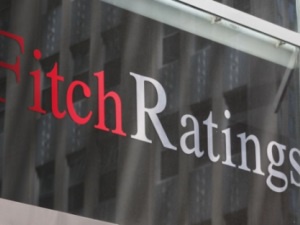Inflation will continue to fall in Ghana in 2017, following several years of extraordinarily high price growth, Fitch has predicted.
According to the ratings agency, “having peaked at 19.2 percent in March 2016, inflation came down to 15.4 percent in December, and we expect further falls in the January print.”
It added that renewed cedi depreciation will prevent a rapid normalisation of inflation, but “we do not expect anything like the sell-off of 2014 and 2015 which was a key driver of Ghana's high inflation levels over the past several years.”
Ghana’s missed its inflation target for December 2016, mostly due to exchange rate depreciation and high spending.
Government had earlier projected an end-year target of 10.1 percent initially and later revised it to 13 percent for the year. However, the Bank of Ghana predicted an 8 percent plus or minus 2 earlier on but later revised it to 13.5 percent.
Year-on-year inflation for December 2016 was 15.4 percent compared with 15.5 percent recorded in November 2016.
Earlier, the Bank of Ghana has said that the recent downward trends in inflation were positive but there were emerging risks in the outlook.
On the upside, rising global yields and a stronger dollar, as well as the anticipated hikes in the Fed rate in 2017 with its implications on external financing conditions for emerging and developing economies, pose risks to the inflation outlook.
In its Monetary Policy Report, it said the impact of the recent exchange rate volatility, persistent increases in food inflation and the higher than targeted fiscal outturn were all upside risks for inflation going forward.
“The downside risks to the inflation outlook include the continued improvement in inflation expectations alongside deceleration in core inflation is expected to support the downward trends in inflation in the coming months”
Last month, the MPC kept the policy rate unchanged at 15.5 percent, stating the Committee viewed the declining trends observed in headline inflation, core inflation and inflation expectations as positive. Nonetheless, there are concerns regarding the inflation outlook, which could be impacted by the pass-through effects of the recent exchange rate volatility, persistent increases in food inflation and the fiscal outturn.
The Central Bank said there is, therefore, the need to return to the path of fiscal consolidation to complement the tight monetary policy stance to deliver on the medium-term inflation target.
Business News of Friday, 17 February 2017
Source: The Finder













